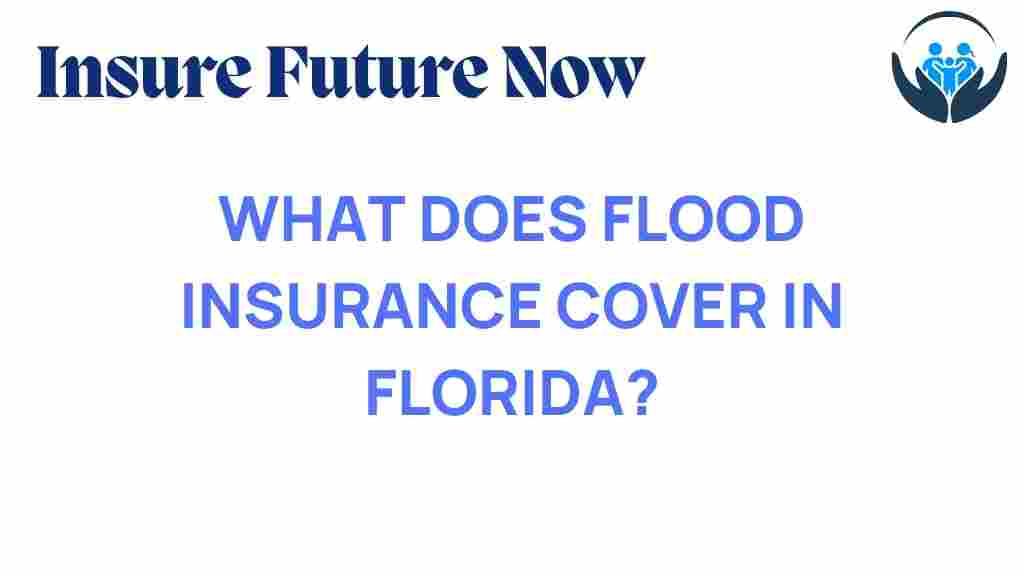Unraveling Flood Insurance: What Coverage Means for Floridians
As residents of Florida, we experience a unique blend of natural beauty and the risk of natural disasters, particularly flooding. Flood insurance is a crucial aspect of disaster preparedness for homeowners in this state. With hurricanes and heavy rains being common, understanding flood insurance, its coverage, and the policies available is essential for protecting your property and financial well-being.
Understanding Flood Insurance
Flood insurance is a specialized policy that covers damages specifically caused by flooding. Unlike standard homeowners insurance policies, which typically do not cover flood-related damages, flood insurance provides a safety net for homeowners. It is especially relevant for Floridians due to the state’s susceptibility to tropical storms and hurricanes.
Why Flood Insurance is Vital in Florida
Florida is one of the most flood-prone states in the U.S. Factors contributing to this risk include:
- Geographical Location: Being surrounded by water makes Florida vulnerable to storm surges and rising sea levels.
- Weather Patterns: The state experiences frequent heavy rain and hurricanes.
- Urban Development: Increased development can lead to poor drainage and higher flood risks.
Given these risks, having flood insurance is not just wise; it can be a financial lifesaver in times of disaster.
Types of Flood Insurance Coverage
In Florida, there are two main types of flood insurance coverage available:
- Building Property Coverage: This covers the physical structure of your home, including the foundation, electrical and plumbing systems, and built-in appliances.
- Personal Property Coverage: This protects your personal belongings, such as furniture, electronics, and clothing, from flood damage.
It’s important to assess your needs to determine which coverage is appropriate for your circumstances.
How to Obtain Flood Insurance in Florida
To secure flood insurance, follow these steps:
- Assess Your Risk: Understand your flood risk by checking flood maps and flood zone designations provided by the Federal Emergency Management Agency (FEMA).
- Choose an Insurance Provider: Research and compare different insurance companies that offer flood insurance policies. Look for customer reviews and financial stability.
- Get a Quote: Request quotes from multiple providers. Make sure to provide accurate information about your property to get the most accurate premiums.
- Review Coverage Options: Carefully review the coverage options and limits offered in each policy. Ensure that they meet your needs.
- Purchase a Policy: Once you’ve selected a provider and coverage, complete the application process and pay the first premium to activate your policy.
For more detailed information on available policies, visit the FEMA website.
Cost of Flood Insurance in Florida
The cost of flood insurance can vary significantly based on various factors, including:
- Location: Homes in high-risk flood zones typically face higher premiums.
- Elevation: Properties built at a higher elevation may qualify for lower rates.
- Coverage Amount: The more coverage you choose, the higher the premium.
On average, Florida homeowners can expect to pay between $600 to $1,200 annually for flood insurance, but it can be significantly higher for properties in severe flood zones.
Filing a Flood Insurance Claim
In the unfortunate event that you experience flood damage, knowing how to file a claim is essential:
- Document the Damage: Take photographs and videos of the damage as soon as it is safe to do so. This evidence will be crucial for your claim.
- Contact Your Insurance Provider: Report the loss to your insurance company as soon as possible. Provide them with the details of the incident and the extent of the damage.
- Fill Out Claim Forms: Complete the necessary claim forms provided by your insurer. Ensure that all information is accurate and detailed.
- Meet with an Adjuster: An insurance adjuster will come to assess the damage. Be prepared to provide documentation and answer questions about the incident.
- Keep Records: Maintain copies of all correspondence, claims forms, and receipts related to the claim process.
For more tips on filing claims, consider checking resources on the NFIP website.
Common Challenges in Flood Insurance Claims
While filing claims, homeowners may face several challenges:
- Policy Limitations: Some policies have specific exclusions or limitations that may affect your claim.
- Delayed Payments: Processing claims can sometimes take longer than expected, leading to frustration.
- Disputes Over Damage Assessment: Disagreements with the insurance adjuster regarding the extent of damage can complicate the claim process.
Being proactive and organized can help mitigate these challenges during the claims process.
Disaster Preparedness for Homeowners
Flood insurance is just one component of a larger disaster preparedness strategy. Here are some additional tips for homeowners in Florida:
- Create an Emergency Plan: Have a plan in place for evacuation and communication with family members in case of flooding.
- Build an Emergency Kit: Include essential supplies, such as food, water, medication, and important documents.
- Stay Informed: Keep abreast of weather forecasts and alerts from local authorities.
- Consider Elevating Your Home: If you live in a high-risk area, consider elevating your home or making flood-proofing improvements.
By taking these steps, you can enhance your resilience against flooding and protect your home and family.
Conclusion
Flood insurance is a critical consideration for homeowners in Florida, given the state’s vulnerability to flooding. Understanding the coverage options, costs, and claims process can empower Floridians to protect their homes effectively. Additionally, integrating flood insurance into a broader disaster preparedness plan can significantly enhance your resilience against natural disasters.
By staying informed and prepared, you can navigate the complexities of flood insurance and safeguard your property against the risks associated with flooding in Florida.
This article is in the category Coverage and created by InsureFutureNow Team
